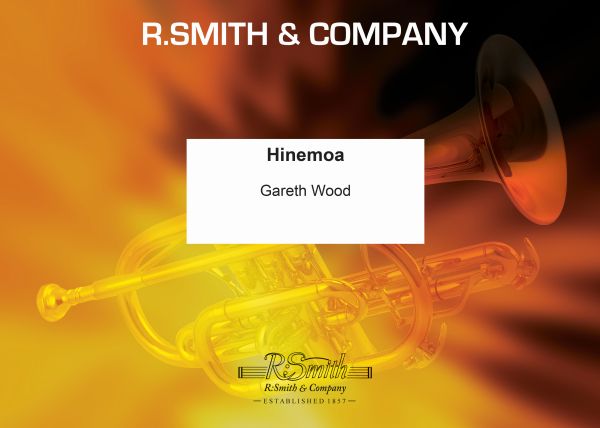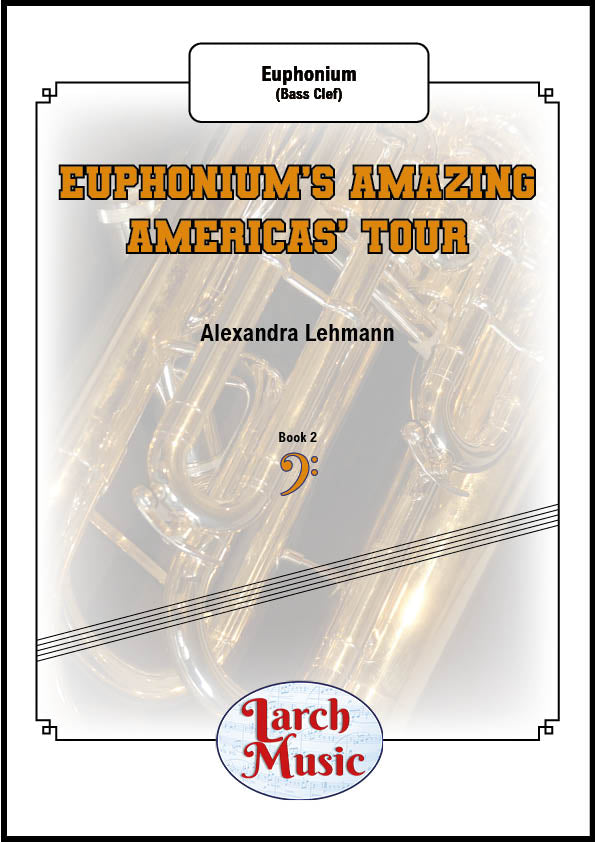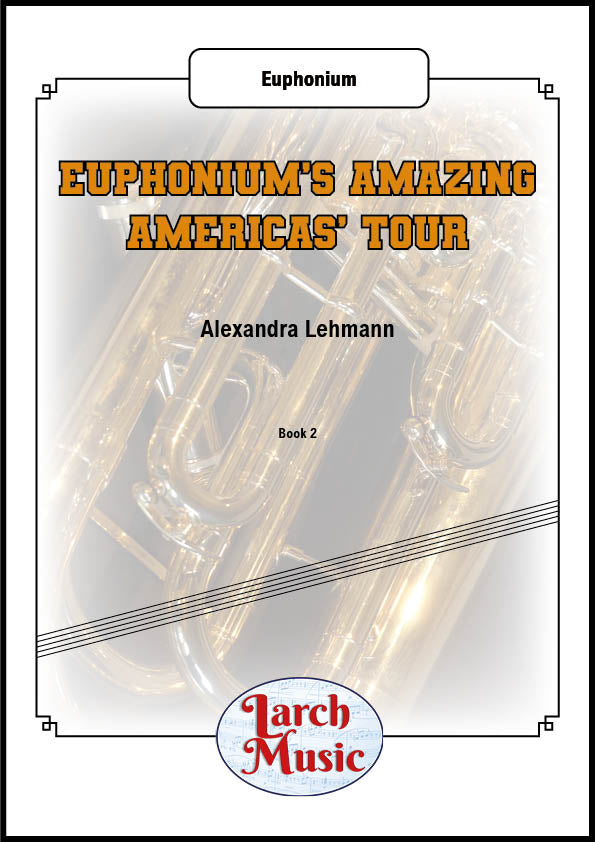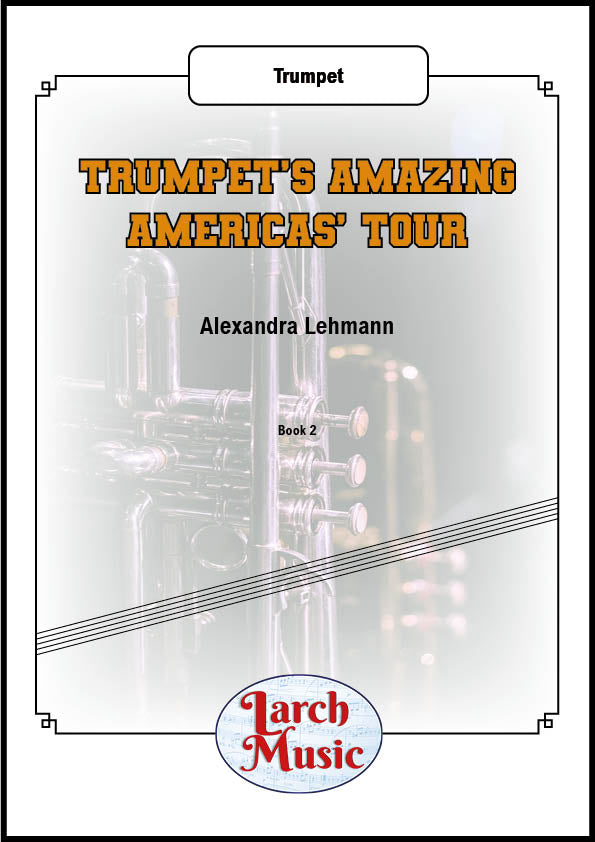Results
-
 £19.95
£19.95Fire in the Blood (Score Only)
Fire in the Blood was commissioned by Dr Stephen Cobb for the 120th anniversary of the International Staff Band of the Salvation Army. The piece was composed for the celebration concert where the ISB were joined by several other staff bands from around the world to perform independently to a sell-out capacity crowd at Britain's most famous concert hall The Royal Albert Hall. Fire in the Blood received its world premier at the 'ISB 120' concert at the Royal Albert Hall on June 4th 2011.With this piece I wanted to acknowledge music that had an impact on me through my Salvation Army upbringing. When thinking of a title for this piece I had no hesitation than to reflect and re-word the Salvation Army's motto under their famous crest 'Blood and Fire'.When composing Fire in the Blood I wanted to use three songs of worship that have been prevalent in the Salvation Army's services over a number of years. Opening with Richard Phillips' setting of Psalm 95, 'Sing for Joy', the music is vibrant and full of energy, I wanted to capture the spirit of the well known words of Scripture. The music then moves into a more reflective section that includes Howard Davies' emotive song melody 'Lord, you know that we love you' and Laurie Klein's worship song 'I love you Lord'.A re-statement of the opening Psalm setting follows and this, in turn, leads into a dramatic and powerful finale that combines two pivotal statements drawn from the slower, reflective section: I love you lord, and I lift my voice to worship you, O my soul rejoice and Lord, you know that we love you with a final flourish from Psalm 95: Come let us sing joy to the Lord!Paul Lovatt-Cooper
Estimated dispatch 7-14 working days
-
 £119.95
£119.95Harrison's Dream (Brass Band - Score and Parts)
At 8.00pm on the 22nd of October 1707, the Association, flagship of the Royal Navy, struck rocks off the Scilly Isles with the loss of the entire crew. Throughout the rest of the evening the remaining three ships in the fleet suffered the same fate. Only 26 of the original 1,647 crew members survived. This disaster was a direct result of an inability to calculate longitude, the most pressing scientific problem of the time. It pushed the longitude question to the forefront of the national consciousness and precipitated the Longitude Act. Parliament funded a prize of �20,000 to anyone whose method or device would solve the dilemma. For carpenter and self-taught clockmaker John Harrison, this was the beginning of a 40 year obsession. To calculate longitude it is necessary to know the time aboard ship and at the home port or place of known longitude, at precisely the same moment. Harrison's dream was to build a clock so accurate that this calculation could be made, an audacious feat of engineering. This work reflects on aspects of this epic tale, brilliantly brought to life in Dava Sobel's book Longitude. Much of the music is mechanistic in tone and is constructed along precise mathematical and metrical lines. The heart of the work however is human - the attraction of the �20,000 prize is often cited as Harrison's motivation. However, the realisation that countless lives depended on a solution was one which haunted Harrison. The emotional core of the music reflects on this, and in particular the evening of 22ndOctober 1707. Peter GrahamCheshireJuly 2000
Estimated dispatch 7-14 working days
-
 £37.95
£37.95Harrison's Dream (Brass Band - Score only)
At 8.00pm on the 22nd of October 1707, the Association, flagship of the Royal Navy, struck rocks off the Scilly Isles with the loss of the entire crew. Throughout the rest of the evening the remaining three ships in the fleet suffered the same fate. Only 26 of the original 1,647 crew members survived. This disaster was a direct result of an inability to calculate longitude, the most pressing scientific problem of the time. It pushed the longitude question to the forefront of the national consciousness and precipitated the Longitude Act. Parliament funded a prize of �20,000 to anyone whose method or device would solve the dilemma. For carpenter and self-taught clockmaker John Harrison, this was the beginning of a 40 year obsession. To calculate longitude it is necessary to know the time aboard ship and at the home port or place of known longitude, at precisely the same moment. Harrison's dream was to build a clock so accurate that this calculation could be made, an audacious feat of engineering. This work reflects on aspects of this epic tale, brilliantly brought to life in Dava Sobel's book Longitude. Much of the music is mechanistic in tone and is constructed along precise mathematical and metrical lines. The heart of the work however is human - the attraction of the �20,000 prize is often cited as Harrison's motivation. However, the realisation that countless lives depended on a solution was one which haunted Harrison. The emotional core of the music reflects on this, and in particular the evening of 22ndOctober 1707. Peter GrahamCheshireJuly 2000
Estimated dispatch 7-14 working days
-
 £49.95
£49.95Bestowal of a Century (Tenor Horn Solo)
Tenor Horn Solo with Brass BandBestowal of a Century (2014) was commissioned by Lowenna Taylor, and funded through her Harry Mortimer Trust award which she was presented with at the 2013 British Open Championship following the completion of her studies at the Royal Welsh College of Music in Cardiff. The 15-minute work received its world premiere at the Cornwall Youth Brass Band Christmas concert in 2014 with solosit, Lowenna, working alongside the band under the baton of Les Neish.The Bestowal refers to the presentation of the Royal Trophy by the then Prince of Wales to the famous West of England Bandsman's Festival in Bugle in 1913. Over the years it has been won by some of the greatest names in brass banding, including Black Dyke and Munn & Feltons - although more recently it has become a wonderful open festival that includes sections for local bands as well as visitors from all over the banding globe. 2014 marked the one-hundredth anniversary of the presentation of the trophy, which is the only brass band trophy to have the official seal of royal patronage.The work, in three distinct sections, opens in a mysterious way, building progressively with interjections from the horn. The composer notes its as though one can imagine different part of the trophy being put together, piece by piece, until the trophy is complete and a climax is reached. Following this, a playful theme is presented which is developed throughout the first section and interacting between soloist and band.The second movement, in complete contrast, is a lyrical melody; heart-wrenching throughout, and sits well both as part of the concerto and also as a stand-alone solo item. The third movement is light-hearted and virtuosic, demonstrating the technical capabilities of the instrument with fast and virtuosic playing, and a cadenza towards the end of the work.
Estimated dispatch 7-14 working days
-
 £19.95
£19.95Mythical Tales (Brass Quintet)
Mythical Tales (2012) is a ten minute work in three movements which represents three of the most popular folk stories or indeed in the case of the first movement, true stories, in Welsh culture.I. Owain GlyndwrOwain Glyn Dwr was born around the 1350s into an Anglo-Welsh gentry family. His estates provided him with a modest power base in north-east Wales. After a number of disputes, he proclaimed himself prince of Wales in September 1400.Glyn Dwr led several battles with the English, although he was never captured. Over the next few years punitive measures were enacted to keep control of Wales, but these were matched by many acts of Welsh rebellion - among them the capture of Conwy Castle in April 1401. In June 1402, at the Battle of Pilleth on Bryn Glas Hill, Glyn Dwr led his troops to victory over an English army. By now Glyn Dwr was leading a national revolt. In 1404, he led a march towards Wocester, but failed, with the English capturing parts of Wales. He died defending his country.II. MyfanwyMyfanwy was the most beautiful woman in Powys, but she was vain and liked nothing better than to be told how beautiful she was. Many handsome men would court her, but she would not show interest because they couldn't sing and play to her, reflecting her true beauty.Luckily, a penniless bard, Hywel ap Einion was in love with Myfanwy, and one day plucked up the courage to climb up the hill to the castle with his harp, to sing and play to her. He's allowed in to play for her, and while he's playing and complimenting her on her beauty she can neither listen nor look at any other man. Because of this Hywel believes that she has fallen in love with him. But his hopes are dashed when a richer, more handsome and more eloquent lover comes along. The music of the second movement portrays the despair and upset that Hywel must have felt.III. Battle of the DragonsMany centuries ago when dragons roamed the land, a white ice dragon descended on a small village and decided to live there, not knowing that a red fire dragon was already living nearby.Six months later the red dragon awoke to find a huge white dragon wrapped around his village that he cared for. He could tell that his people were ill from the cold. The Land was bare; nothing was able to grow not even the pesky dandelions. The people were starving. The people longed for the red dragon to free them from the icy misery, so that their life and land could return to the sunny and warm climate that it was once before.The red fire dragon challenged the white ice dragon to a single combat fight at the top of the cliff the next day. The people of the village watched in terror awaiting their fate. The red dragon beat the white dragon, and the crowd cheered with joy as the red dragon roared with triumph. The mayor of the village declared that the land should always fly a flag with the symbol of a Red dragon on it. The flag's background should be half green and half white; the green to represent the lush green grass of the land and the white to represent the ice. This way no one would ever forget what happened.
Estimated dispatch 7-14 working days
-
 £29.95
£29.95Hinemoa (Score Only)
Hinemoa, the beautiful daughter of Amukaria, a great Maori chief, had seen Tutanekai, a chief and brave warrior from the island of Mokoia, only once, during a tribal gathering; yet she knew she loved him dearly. Amukaria counselled his daughter to forget this man, whose flute-playing Hinemoa heard as it came, soft but clear, across the lake which separated them.At night she went to the shore and listened. The sound of the flute spoke to Hinemoa, giving her courage. When Tutanekai managed to get a message to Hinemoa, her mind was made up.On the next moonless night she entered the dark, cold waters of the lake, using empty gourds as floats. She was determined to swim the long distance to her lover. Tutanekai's flute-playing kept her going, until at last she reached the shores of Mokoia.Great was the joy when the lovers at last met, the rocks echoing Tutanekai's cry - 'HINEMOA'.
Estimated dispatch 7-14 working days
-
 £22.50
£22.50Petite Suite de Ballet (Score Only)
This composition consists of four 'miniatures', simple in construction, yet not without technical demands upon the players.The music is for a ballet which so far exists only in the imagination! Like most ballet, it has a touch of the fantastic, and must be interpreted with a light, deft touch.The first movement, Parade, brings many characteristics on to the stage, marching perkily, leggily, with almost puppet-like movements.In the next movement, Pas Seul (Solo Dance), one lone figure holds the stage, with a mixture of grace and sauciness. At the end he (or she) runs off with a snap of the fingers.The third movement is a Minuet. A chosen few, richly garbed, perform this stately, courtly dance, while the rest of the company look on at some ritual in which they are not allowed to join.The final Ensemble commencing with the return of the lone figure, gradually brings the whole company to the stage. Various groups come forward for a few moments, and then rejoin the general pattern of the dancing. Towards the end a stately procession is formed, but this finally breaks up in a sudden flurry of leaping and capering, and in a moment, as though at some magic call, the dances have disappeared, whilst the sonorous tones of the final bars of music follow them with a rather disapproving air.Our little fantasy in over.
Estimated dispatch 7-14 working days
-
 £9.95
£9.95Euphonium's Amazing Americas Tour - Solo Euphonium (Bass Clef) - LM172 - Alexandra Lehmann
COMPOSER: Alexandra LehmannEuphonium's Amazing Americas TourThe year 2020 will be infamously recorded as a time when musicians had to lead a solitary life, which is incompatible with musical activity.1. Hearty HoedownEuphoniumplays at a lively, social, rural gathering;a 'hoedown'; for cowboys and girls. Yeeha!2. Barcarolle BluesOn the 18th of December 1865, the 13th Amendment(abolishing slavery in USA) was officially adopted into the Constitution.Euphoniumis on a boat sailing the Mississippi with former slavestravelling further north in hope of a better life.As the river gently sways the traumatised passengers,they find solace in music-making.3. Kindred KlezmerEuphoniumis playing for Ashkenazi (West and East European)Jews dancing fervently and with joy as a community.4. Carnival CalypsoFurther south, in 1834,Euphonium is playing at a carnivalcompetition in Trinidad, celebrating the abolition of slavery.It is in call (the lead singer)-and-response (the rest of the group) form.The chariot passes through cheering crowds,and trundles merrily into the distance.5. Tantalising TangoEuphoniumis at a dance theatre in downtown Buenos Aires,playing an intense, and moody tango.Couples dance in a passionate and powerful embrace.6. Hallowed Harawi of the IncasThe Incas are no more, like so many indigenouspeoples of the Americas.Euphonium plays an Incan Harawi,a love song, as their spirit still echoes across the valleys,mountains, forests, and rivers that nurtured them in ancient times.
In Stock: Estimated dispatch 3-5 working days
-
 £9.95
£9.95Euphonium's Amazing Americas Tour - Solo Euphonium (Treble Clef) - LM169 - Alexandra Lehmann
COMPOSER: Alexandra LehmannEuphonium's Amazing Americas TourThe year 2020 will be infamously recorded as a time when musicians had to lead a solitary life, which is incompatible with musical activity.1. Hearty HoedownEuphoniumplays at a lively, social, rural gathering;a 'hoedown'; for cowboys and girls. Yeeha!2. Barcarolle BluesOn the 18th of December 1865, the 13th Amendment(abolishing slavery in USA) was officially adopted into the Constitution.Euphoniumis on a boat sailing the Mississippi with former slavestravelling further north in hope of a better life.As the river gently sways the traumatised passengers,they find solace in music-making.3. Kindred KlezmerEuphoniumis playing for Ashkenazi (West and East European)Jews dancing fervently and with joy as a community.4. Carnival CalypsoFurther south, in 1834,Euphonium is playing at a carnivalcompetition in Trinidad, celebrating the abolition of slavery.It is in call (the lead singer)-and-response (the rest of the group) form.The chariot passes through cheering crowds,and trundles merrily into the distance.5. Tantalising TangoEuphoniumis at a dance theatre in downtown Buenos Aires,playing an intense, and moody tango.Couples dance in a passionate and powerful embrace.6. Hallowed Harawi of the IncasThe Incas are no more, like so many indigenouspeoples of the Americas.Euphonium plays an Incan Harawi,a love song, as their spirit still echoes across the valleys,mountains, forests, and rivers that nurtured them in ancient times.
In Stock: Estimated dispatch 3-5 working days
-
 £9.95
£9.95Trumpet's Amazing Americas Tour - Solo Trumpet - LM187
COMPOSER: Alexandra LehmannTrumpet's Amazing Americas TourThe year 2020 will be infamously recorded as a time when musicians had to lead a solitary life, which is incompatible with musical activity.1. Hearty HoedownTrumpetplays at a lively, social, rural gathering;a 'hoedown'; for cowboys and girls. Yeeha!2. Barcarolle BluesOn the 18th of December 1865, the 13th Amendment(abolishing slavery in USA) was officially adopted into the Constitution.Trumpetis on a boat sailing the Mississippi with former slavestravelling further north in hope of a better life.As the river gently sways the traumatised passengers,they find solace in music-making.3. Kindred KlezmerTrumpetis playing for Ashkenazi (West and East European)Jews dancing fervently and with joy as a community.4. Carnival CalypsoFurther south, in 1834,Trumpet is playing at a carnivalcompetition in Trinidad, celebrating the abolition of slavery.It is in call (the lead singer)-and-response (the rest of the group) form.The chariot passes through cheering crowds,and trundles merrily into the distance.5. Tantalising TangoTrumpetis at a dance theatre in downtown Buenos Aires,playing an intense, and moody tango.Couples dance in a passionate and powerful embrace.6. Hallowed Harawi of the IncasThe Incas are no more, like so many indigenouspeoples of the Americas.Trumpet plays an Incan Harawi,a love song, as their spirit still echoes across the valleys,mountains, forests, and rivers that nurtured them in ancient times.
In Stock: Estimated dispatch 3-5 working days



